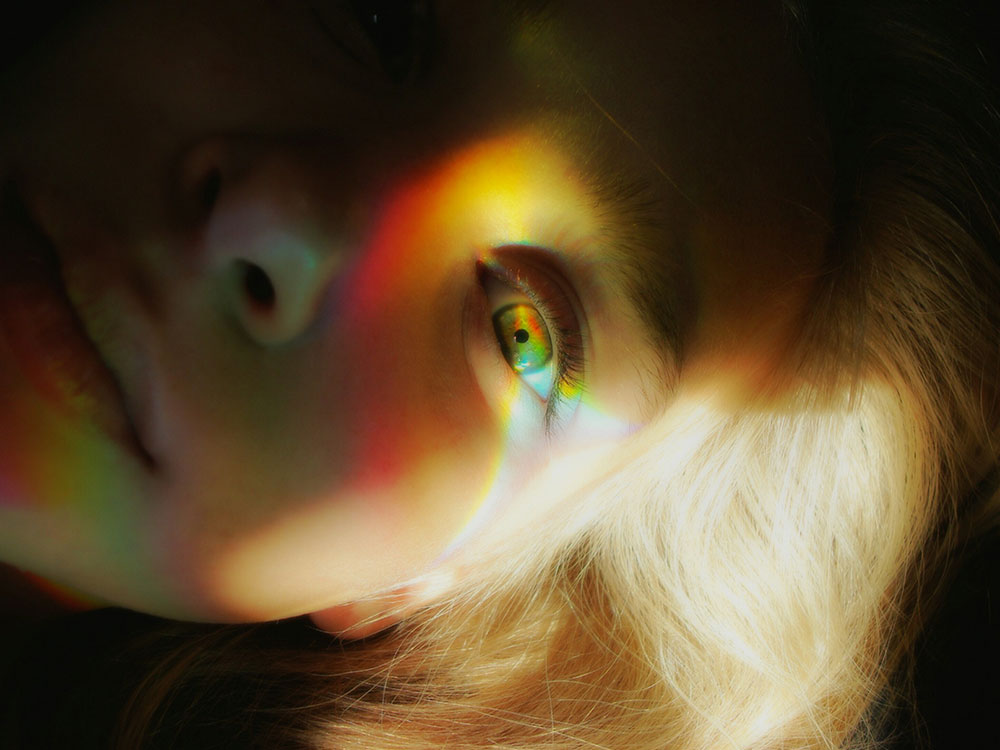Why Does Everything Seem Darker in One Eye?

Anytime you have a drastic change in vision (especially without warning signs), we recommend contacting an eye doctor. Your optometrist can take a look at what’s happening within your eyes, diagnose you for eye issues, and help you find the right treatment.
One of the questions we get from our patients a lot deals with darkened vision. The causes may vary, but in general, this symptom necessitates a conversation with your eye care provider.
The American Optometric Association (AOA) does note that as you age, colors may appear more faded and unclear. This is because your eye lens may change color itself. But is getting older the only reason behind color changes in your vision? No, it’s not.
So, why does everything seem darker in one eye? Let’s discuss this.
Why does everything seem darker in one eye?
If things look dimmer in one eye, it could signify a serious eye issue. Many conditions, including age-related macular degeneration (AMD), cataracts, and glaucoma, can affect your eyes’ means to process colors. Optic neuritis and retinal detachment may also contribute to this symptom.
So, why does everything seem darker in one eye? There are many potential causes. Complications with the optic nerve, eye diseases, and problems with your retina are common reasons behind dim vision in a single eye.
When any light comes into your eye, it should direct to the retina. The retina transfers data to the optic nerve, which works with the brain to turn the data into visuals that you can see with your naked eye. If there are any dilemmas with your optic nerve, such as in the case of optic neuritis, color saturation problems may arise.
Remember that sometimes dim vision impacts one eye, but at other times, it can affect both. Cataracts, for instance, are common in both eyes, but it’s not unheard of for them to happen in a single eye. Your symptoms might also be more significant in one eye, making you think that the other eye is not having issues when it is.
Is it normal for vision to be darker in one eye when waking up?
Your vision should never be darker in a single eye in the morning. This symptom could indicate an eye stroke or another problem. Your eye doctor can let you know for sure. If it turns out to be an eye stroke, the dim vision is likely caused by decreased blood flow to the optic nerve.
This condition may lead to problems with your side vision or present empty areas in your line of sight. Consult your eye doctor right away if you’re experiencing these symptoms, in addition to darker vision in a single eye, to determine the cause and reduce additional problems down the line.
Summary: What causes dim vision in a single eye?
Darkened vision at any point is worth a call to your eye doctor, especially if it goes on for several minutes or more. If you’ve been wondering, ‘Why does everything seem darker in one eye?’, know that it could be for several reasons. It may be a symptom of an eye disease (e.g., AMD, cataracts, or glaucoma), or it could be due to issues with the optic nerve or retina.
Your eyes need both the optic nerve and retina to see. If your optic nerve is having complications, you might develop optic neuritis, which can make your vision look darker. And if your retina is at risk for detachment, your color vision may be impacted, too.
Do you experience problems with dark vision just in the morning? Contact your eye doctor right away, as this could indicate an eye stroke. Whatever the cause of your dim vision is, For Eyes’ eye care specialists are here for you.
Book your eye exam at For Eyes
Have you had your annual comprehensive eye exam? Schedule an appointment with an Independent Doctor of Optometry at your local For Eyes.








